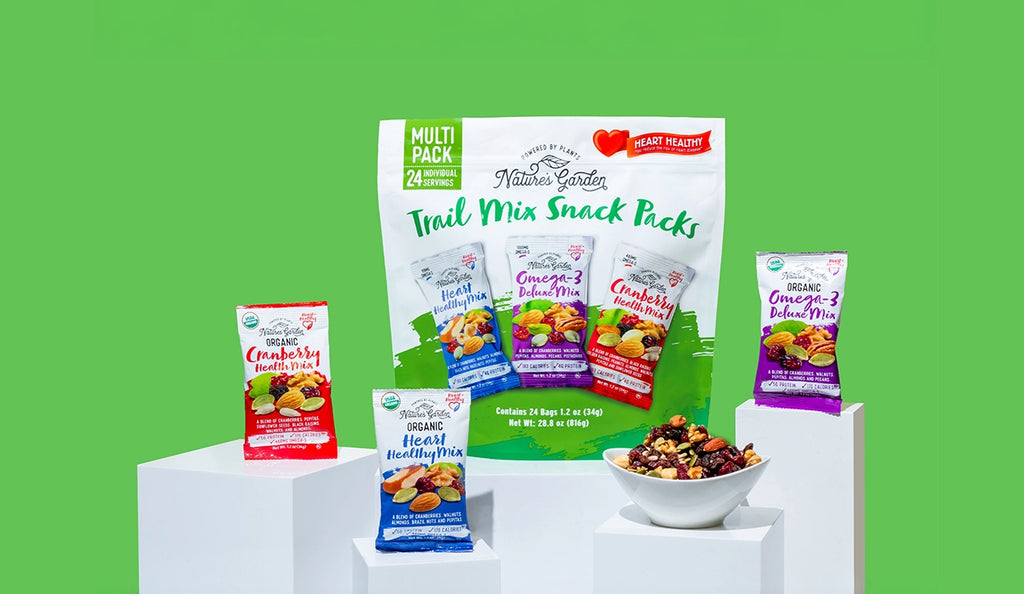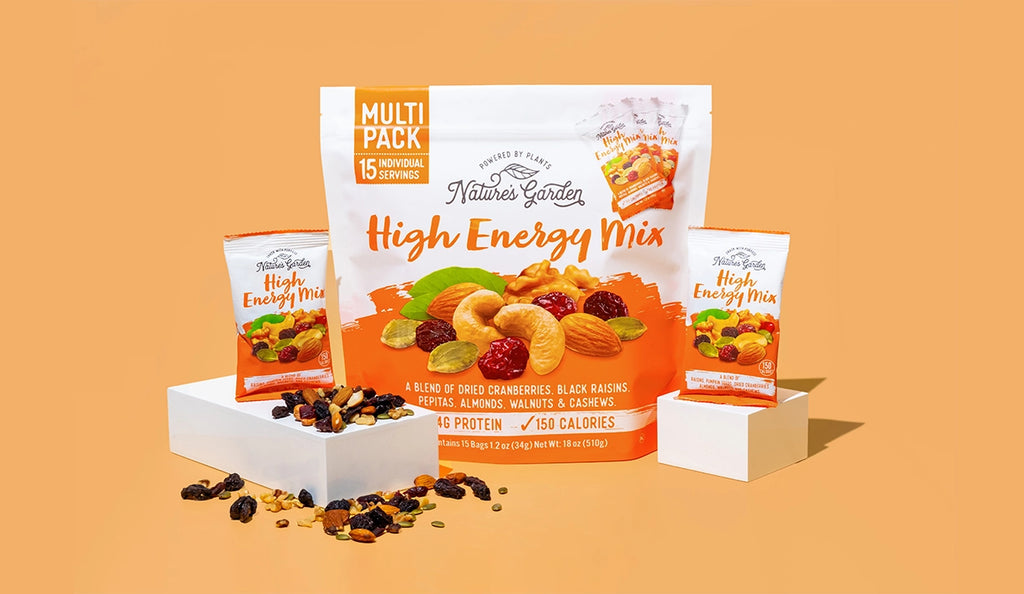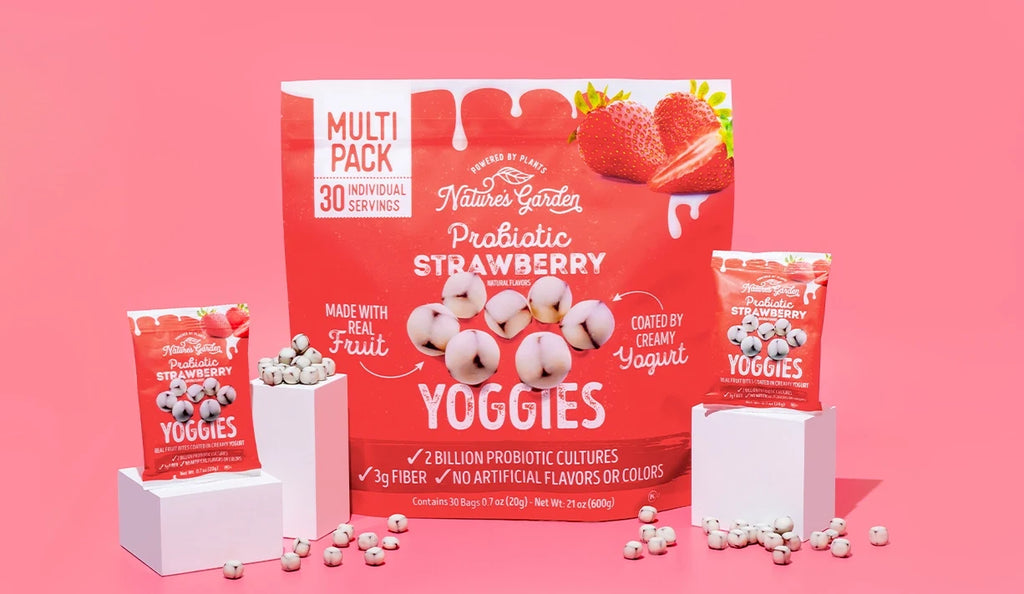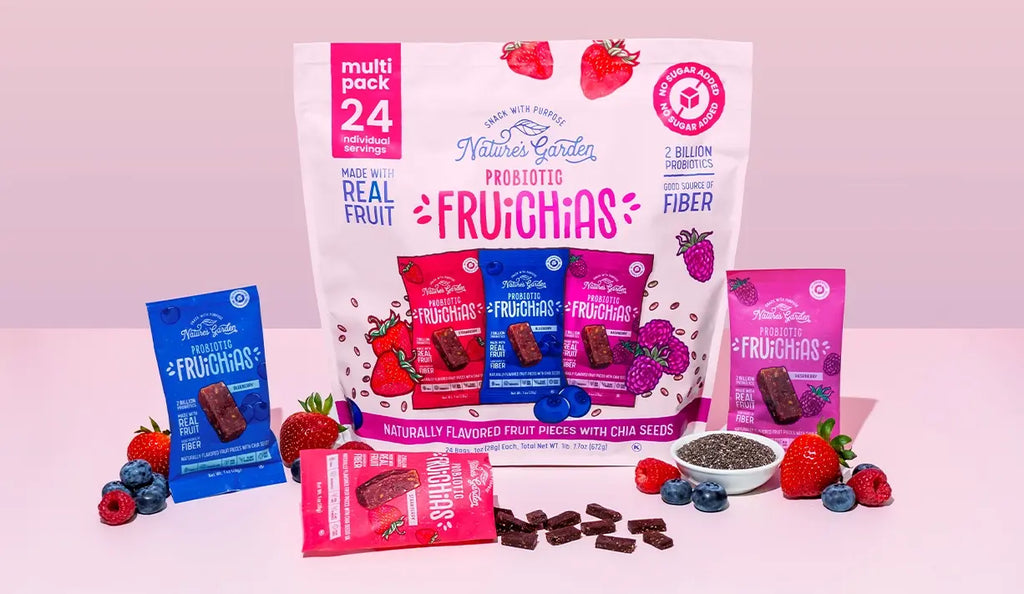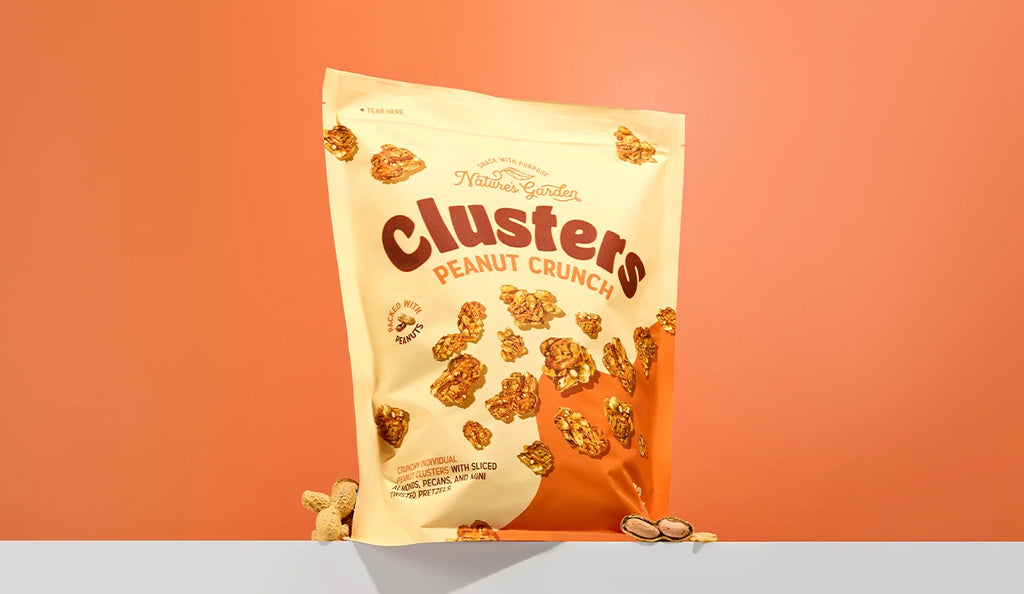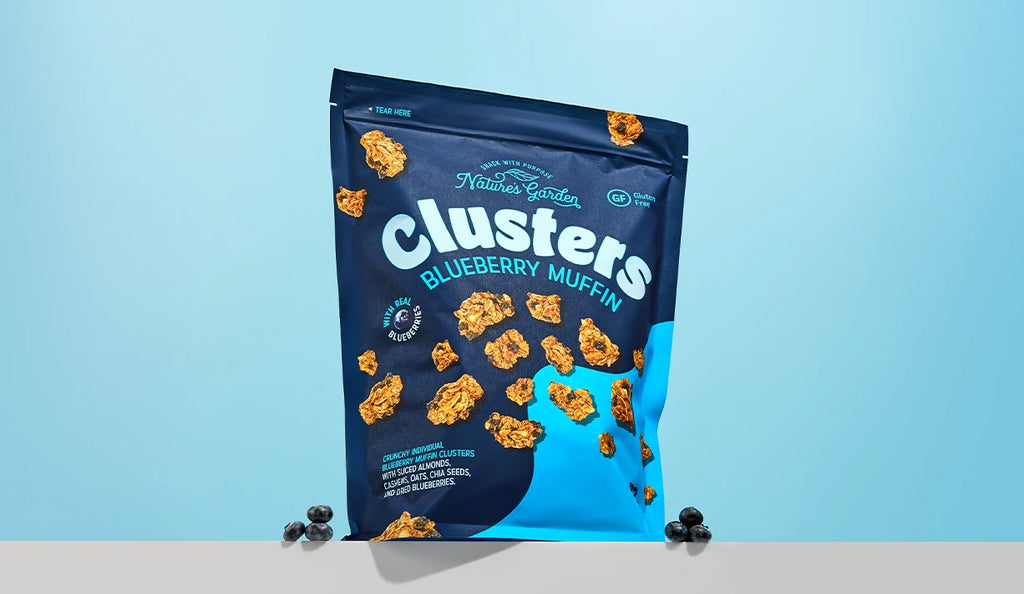Pistachios, like the other nuts we’ve explored in this series are incredible versatile, offer a variety of nutritional and health benefits, while also having their own niche specialties. Regularly including pistachios in your diet can be a tasty and nutritious way to support your present and long-term health. Pistachios have an array of applications too, making them an easy on the go option or one to explore new healthy recipes for. If you’re looking for a new way to add pistachios to your diet, check out the variety form Nature’s Garden here, featuring their Probiotic Immune Booster Mix or their Omega-3 Deluxe Mix.

Why Choose Pistachios as a Snack?
Pistachios have been eaten since as early as 6,000 B.C. and are one of the oldest flowering nut trees in human history. They’ve been cultivated for thousands of years and have weaved their way into our diets throughout history, because of their range of benefits. Their ability to thrive in hot, dry climates has made them a staple in the Mediterranean region as well as Iran, Türkiye, Syria, and in the United States, primarily California. Not only have they stood the test of time, but they are considered low in carbohydrates, have a lower fat content than other nuts, they are a good source of vegetable protein, and have a higher essential amino acid ratio than most other commonly consumed nuts, according to the National Library of Medicine. Interestingly enough, they also have a low water footprint in comparison to other nuts like almonds, and their trees are relatively drought-resistant, making them a great option when choosing a more environmentally sustainable snack option. Their hard-shell exterior, that is inedible, splits open when they ripen showing off their distinct green color which is a result of their high content of bioactive compounds, like their abundance of antioxidants.
What are the Benefits of Pistachios?
Pistachios are incredibly versatile in the kitchen, which makes them one of the easiest nuts to work into your diet one way or another. Just like any other nut, they’re incredible convenient, making them a dream addition for those of us that have packed schedules. They also have an abundance of health and nutritional benefits that contribute to their dietary help.
Nutritional benefits of pistachios
Including pistachios in your diet can provide several nutritional benefits for us, that support overall health and well-being. Pistachios and their nutrient profile consist of nutritional benefits like:
- High Protein Content: Pistachios are one of the best sources of protein that can be consume through nuts, as they provide about 6 grams per ounce. They also contain all essential amino acids which is a rarity in plant-based foods.
- Dietary Fiber: With roughly 3 grams of fiber per ounce, this leads to the maintenance of healthy bowel movements and over digestive health, as well as a healthy gut microbiome.
- Abundance of Vitamins: Pistachios are an excellent source of vitamin B6 which is important for normal brain development, helps in the production of neurotransmitters, and aids in keeping the nervous system and immune system, healthy. They also contain B1 (thiamine), B2 (riboflavin), B3 (niacin), and folate (B9) which play important roles in the metabolizing of energy as well as overall health.
- Extensive Mineral Count: These nuts are viable sources of potassium, phosphorous, magnesium, copper, and manganese. Each of these play pivotal roles in maintaining overall health.
- Blood Sugar Control: Pistachios have a low glycemic index, meaning they cause a slower and smaller rise in blood sugar levels, making them a good snack option for those actively managing their blood sugar levels, including those with diabetes.
- Presence of Healthy Fats: Pistachios are, “composed mainly of saturated fatty acid, polyunsaturated fatty acid, and monounsaturated fatty acid,” according to the National Library of Medicine. With the majority being health-healthy fats, they help increase good cholesterol and lower bad cholesterol.
- Eye Health: Lutein and Zeaxanthin in pistachios are antioxidants that are crucial contributors to eye health and help protect against age-related macular degeneration and cataracts.
In addition to the above list of nutritional contributions that pistachios made, the caloric intake from pistachios is also less than what may be anticipated. This is because of their high protein and fiber content which reduce overall calorie consumption and promote satiety.
How Can I Add Pistachios to My Diet?
Pistachios are not only one of the most versatile plant-based food options out there, but they also can be worked into a variety of different recipes. It’s as simple as adding them to your breakfast by tossing them into your morning cup of yogurt or oatmeal, working them into a snack like homemade trail mix, or even checking out Nature’s Garden’s options that include pistachios that are pre-portioned here. Some of the more specialized uses are pistachio butter and pistachio flour which are both healthy substitutes and ingredients that aren’t too labor intensive to switch over to from our regular baking practices. They can also be used for crusts of meats or fishes when coating our proteins, as well as incorporated into a sauce for pasta like pesto. Whether it’s keeping things simple and making pistachios your next topping or really taking the time to find a new recipe that adds them to your repertoire, you can’t go wrong with these nut powerhouses.


